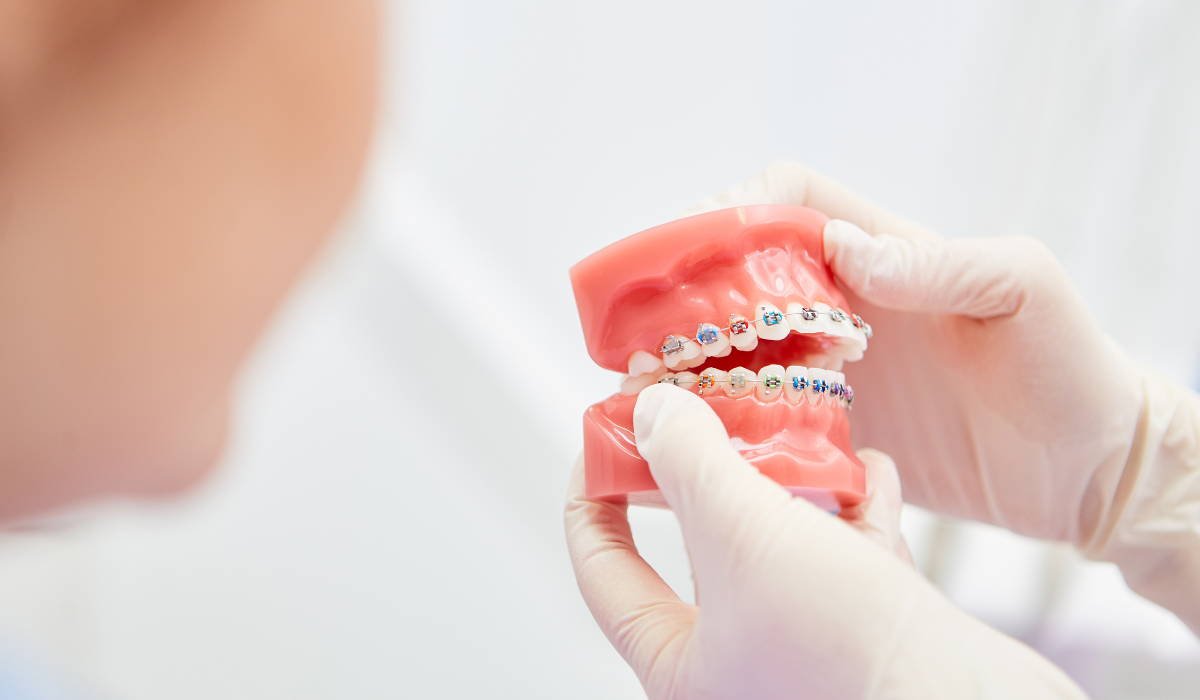Can you Sleep with Your Dentures in

If you are a denture wearer, you may be wondering if it is safe to sleep with your dentures in. Many people feel uncomfortable or insecure without their teeth, but is it really a good idea to keep them in while you sleep? We will explore the risks and benefits of sleeping with dentures and provide you with the information you need to make an informed decision.
What are dentures?
Dentures are removable dental appliances that are used to replace missing teeth. They can be made of acrylic resin, porcelain, or a combination of materials, and are custom-made to fit each individual’s mouth.
Can you sleep with your dentures in?
While it is possible to sleep with dentures in, it is generally not recommended. Keeping dentures in while you sleep can increase the risk of complications such as infections, sores, and inflammation. It can also cause the dentures to become warped or misaligned over time.
The risks of sleeping with dentures
While it is possible to sleep with dentures in, it is generally not recommended. There are several risks associated with sleeping with dentures, including:
• Increased risk of oral health problems
Sleeping with dentures in can increase your risk of developing oral health problems, such as gum disease and tooth decay. This is because wearing dentures for extended periods can cause bacteria and food particles to become trapped between the dentures and your gums, leading to inflammation and infection.
• Increased risk of denture damage
Sleeping with dentures in can also increase the risk of damage to the dentures themselves. This is because the pressure of biting and grinding during sleep can cause the dentures to become misaligned or even break.
• Discomfort and soreness
Sleeping with dentures in can also be uncomfortable and may cause soreness in your mouth. This can make it difficult to get a good night’s sleep and may lead to additional oral health problems if left untreated.
Sleeping with dentures in can increase the risk of developing oral health problems such as oral thrush, which is a fungal infection that can occur when dentures are not removed for an extended period of time. It can also cause the gums to become inflamed and irritated, which can lead to sores and infections.
The benefits of sleeping with dentures
While there are risks associated with sleeping with dentures, some people may find it more comfortable or convenient to do so. Here are a few potential benefits of sleeping with dentures:
• Improved self-esteem
For some people, sleeping with dentures may improve their self-esteem by allowing them to maintain a natural-looking smile while sleeping.
• Convenience
Sleeping with dentures can also be more convenient for some people who do not want to take them out and clean them every night.
• Reduced denture slipping
Some people may find that sleeping with dentures helps to reduce slipping or movement of the dentures while they sleep. While there are some risks associated with sleeping with dentures in, there are also some benefits. Some people feel more secure and comfortable with their dentures in, and may sleep better as a result..
How to care for your dentures
To keep your dentures in good condition, it is important to clean them thoroughly each day. This can be done with a soft-bristled toothbrush and a mild soap or denture cleaner. You should also soak your dentures in water or denture solution overnight to keep them from drying out. It is important to avoid using hot water or harsh chemicals on your dentures, as this can cause damage or warping. You should also avoid using toothpaste, as it can be abrasive and damage the surface of the dentures.
Proper denture care
Whether you choose to sleep with your dentures in or not, it is important to take proper care of them to ensure they remain in good condition and avoid oral health problems. Here are a few tips for caring for your dentures:
• Clean your dentures daily
Dentures should be cleaned at least once a day with a soft-bristled toothbrush and a mild soap or denture cleaner. This will help to remove bacteria and food particles and prevent the buildup of plaque.
• Soak your dentures overnight
When you are not wearing your dentures, they should be stored in water or denture solution to prevent them from drying out and becoming misshapen.
• Brush your gums and tongue
Brushing your gums and tongue with a soft-bristled toothbrush can help to remove bacteria and prevent bad breath.
• See your dentist regularly
Regular dental checkups are important for anyone who wears dentures. Your dentist can check the fit of your dentures and make any necessary adjustments to ensure they are comfortable and effective. If you experience any discomfort or soreness while wearing your dentures, you should contact your dentist. They may need to adjust the fit of the dentures or provide you with additional instructions on caring for them.
Conclusion
In conclusion, while it is possible to sleep with dentures in, it is generally not recommended due to the risk of complications. Taking care of your dentures and following proper hygiene practices can help to ensure they remain in good condition and avoid oral health problems. If you have any concerns or questions about wearing dentures, be sure to speak with your dentist.
RECENT ARTICLES
